July 23rd, 2018 by
Get Rid of Pests Without Expensive Pest Control Calls
Here in the UK, pest control callouts have been steadily increasing for a number of years. This is because of steadily rising temperatures which create ideal environments for many species of pest to flourish. In addition, most of the pests in the UK are highly adaptable, so they can quickly learn how to deal with our rapidly changing homes. Read on to learn about the most common pests you’re likely to encounter in the UK and, more importantly, how you can deal with them without needing to place an expensive pest control call!
Fleas
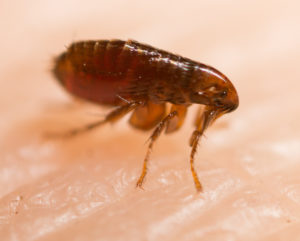 Coming 6th on the list with 4% of total pest control fallouts, fleas are a well-known nuisance. Fleas are small bloodsucking mites that live on their hosts, leaving itchy bites all over their host’s bodies. Unlike other types of bloodsuckers, fleas prefer to live in thick fur, meaning they’ll commonly target pets and other animals. That doesn’t mean they won’t snack on humans if there isn’t any alternative, though!
Coming 6th on the list with 4% of total pest control fallouts, fleas are a well-known nuisance. Fleas are small bloodsucking mites that live on their hosts, leaving itchy bites all over their host’s bodies. Unlike other types of bloodsuckers, fleas prefer to live in thick fur, meaning they’ll commonly target pets and other animals. That doesn’t mean they won’t snack on humans if there isn’t any alternative, though!
How to Get Rid of Fleas
Although fleas can still invade your home if you don’t have pets – they can hitch a ride on rats and even on your socks – you’re significantly more at risk if you have pets. That means kitting your pets out with flea treatment is essential. While fleas prefer to live on their host animal, they can survive in carpets, clothing, and furniture if they need to. In addition, flea eggs that are laid on the host will fall off around your carpets and onto your furniture. This means even though you can treat your pets effectively, you can still have hundreds of unhatched eggs lurking around your home! Because of this, it’s important that you re-treat an area a second time, preferably using a different method, to mop up any fleas you might have missed. Use a flea killer kit to keep your home covered in case the first treatment doesn’t get the job done.
Moths
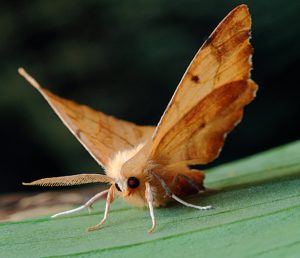 With 5% of pest control callouts, moths are an increasingly common nuisance. Moths are incredibly adaptable thanks to their short lifespan, meaning they’ve quickly evolved to cope with modern life. Moths don’t harm us like other pests might, but they do lay eggs in fabrics that contain natural fibres. When these eggs hatch, the moth larvae immediately start eating through whatever they can. This means that our nice clothes, curtains, carpets, and anything else in your home that contains silk, paper, or cotton are at risk. As these materials tend to be found in our more expensive things, a moth infestation can be upsetting to deal with.
With 5% of pest control callouts, moths are an increasingly common nuisance. Moths are incredibly adaptable thanks to their short lifespan, meaning they’ve quickly evolved to cope with modern life. Moths don’t harm us like other pests might, but they do lay eggs in fabrics that contain natural fibres. When these eggs hatch, the moth larvae immediately start eating through whatever they can. This means that our nice clothes, curtains, carpets, and anything else in your home that contains silk, paper, or cotton are at risk. As these materials tend to be found in our more expensive things, a moth infestation can be upsetting to deal with.
How to Get Rid of Moths
As moths are destructive pests, it’s much better to prevent them from attacking your best clothes in the first place. Use some moth killing spray on anything that could be a target for moths – such as clothes and furniture that contain natural fibres – to prevent them from laying their eggs on your clothes. If you’re unlucky enough to be suffering a moth infestation, treat moths the same way you would any egg-laying pests and look at moth killing kits. These kits give you multiple weapons to use against moths that will kill adult moths, their larvae, and their unhatched eggs. This way, even if you don’t catch all the moths with your spray, the dusting powder and smoke bombs will polish off the ones you missed.
Cockroaches
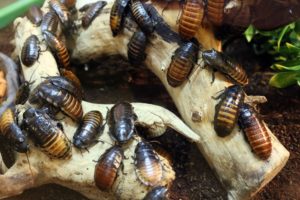 Cockroaches account for 6% of pest control callouts and are famous for their resilience. While the famous myth about cockroaches being able to survive a nuclear bomb blast isn’t true, cockroaches can still deal with a lot. They can still survive high radiation levels, last underwater for half an hour, and they can even live for a week without a head! This makes cockroach infestations especially problematic as they’re just so hard to get rid of. To make matters worse, cockroaches carry a lot of bacteria, making them a real hygiene risk, and can trigger asthma and allergic reactions.
Cockroaches account for 6% of pest control callouts and are famous for their resilience. While the famous myth about cockroaches being able to survive a nuclear bomb blast isn’t true, cockroaches can still deal with a lot. They can still survive high radiation levels, last underwater for half an hour, and they can even live for a week without a head! This makes cockroach infestations especially problematic as they’re just so hard to get rid of. To make matters worse, cockroaches carry a lot of bacteria, making them a real hygiene risk, and can trigger asthma and allergic reactions.
How to Get Rid of Cockroaches
Cockroaches don’t have a tough reputation for nothing, but you can get rid of them with a bit of cleaning and the right insecticide. They love the dirt, so making sure your home is clean is a good place to start. Cockroaches are notorious for slipping through cracks and hiding in seemingly impossible-to-reach places, so a cockroach killing kit is essential here. These kits will help you treat every nook and cranny of your home with different cockroach killing solutions so you have multiple modes of attack. Apply sprays, aerosols, and dusting powder around door and window frames, cracks in walls, and gaps in skirting (especially in your kitchen) to cut off the cockroaches’ path into your home.
Wasps
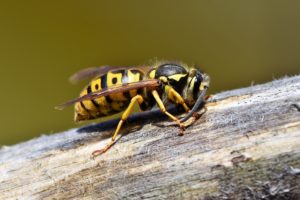 Beating cockroaches out by a hair, wasps take the bronze medal for being the country’s 3rd most common pests! Wasps aren’t as resilient as cockroaches, but they also aren’t particularly attracted to dirt and can build nests in virtually any sheltered area. Anyone who’s unlucky enough to have been stung by a wasp will tell you exactly why wasps are dangerous – they can cause allergic reactions and can prove fatal in some cases, and while this is rare a wasp sting is still unpleasant enough that you don’t want them around your house!
Beating cockroaches out by a hair, wasps take the bronze medal for being the country’s 3rd most common pests! Wasps aren’t as resilient as cockroaches, but they also aren’t particularly attracted to dirt and can build nests in virtually any sheltered area. Anyone who’s unlucky enough to have been stung by a wasp will tell you exactly why wasps are dangerous – they can cause allergic reactions and can prove fatal in some cases, and while this is rare a wasp sting is still unpleasant enough that you don’t want them around your house!
How to Get Rid of Wasps
Wasps are attracted to any form of food, and especially sugary food and drinks, so if you’re ever having a BBQ or garden party in the summer, it pays to be prepared! Pick up some flying insect killing spray so that you can deal with individual wasps that come around looking for a quick snack. Single wasps are easily dealt with this way, however, if you end up with a wasp’s nest near your house, that’s a much bigger problem. Unlike many pests, wasps aren’t particularly attracted to dirt, so keeping your house and garden clean won’t keep wasps away. Wasps like to build nests in dry, sheltered areas that have some access to the outside. This means they can infest sheds, birdboxes, garages, under trees and bushes, and even beneath your roof and around your guttering. Be very careful if you’re trying to deal with the wasps yourself as wasps are highly territorial and very aggressive. If the wasps are in an enclosed space and you feel comfortable doing so, use a smoke bomb to smoke the wasps out without getting too close to them. Don’t put yourself at risk to do this, though – if you can’t get rid of a wasp’s nest from afar, play it safe and call the professionals.
Bedbugs
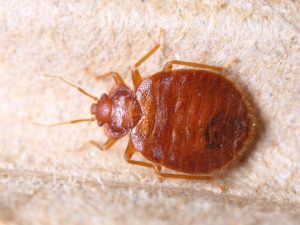 With a startling 16% of all pest control callouts, bedbugs are a deceptively serious problem. Bedbugs are bloodsucking mites that are infamously difficult to get rid of as they reproduce so quickly, meaning they can infest a home in a matter of weeks. Bedbugs live in warm, sheltered areas where they can easily get at human flesh for a blood meal, making beds perfect for them. Despite their name, bedbugs can also live in clothing, wardrobes, sofas, carpets – pretty much anywhere that’s soft and warm. Bedbugs are often confused with fleas, but unlike their hopping cousins, bedbugs don’t like to live on their hosts and don’t like fighting through thick fur unless they have to. Bedbug bites often come in clusters or lines and can be itchy, keeping you up at night and causing stress and anxiety. One thing to be aware of is that bedbugs aren’t attracted to dirt so keeping your house spotless doesn’t mean you’re safe from bedbugs! Bedbugs can enter your home in used furniture or clothing, or they can hitch a ride in your luggage if you’ve stayed in an infested hotel, so always be sure to check your room out before you jump into a hotel bed.
With a startling 16% of all pest control callouts, bedbugs are a deceptively serious problem. Bedbugs are bloodsucking mites that are infamously difficult to get rid of as they reproduce so quickly, meaning they can infest a home in a matter of weeks. Bedbugs live in warm, sheltered areas where they can easily get at human flesh for a blood meal, making beds perfect for them. Despite their name, bedbugs can also live in clothing, wardrobes, sofas, carpets – pretty much anywhere that’s soft and warm. Bedbugs are often confused with fleas, but unlike their hopping cousins, bedbugs don’t like to live on their hosts and don’t like fighting through thick fur unless they have to. Bedbug bites often come in clusters or lines and can be itchy, keeping you up at night and causing stress and anxiety. One thing to be aware of is that bedbugs aren’t attracted to dirt so keeping your house spotless doesn’t mean you’re safe from bedbugs! Bedbugs can enter your home in used furniture or clothing, or they can hitch a ride in your luggage if you’ve stayed in an infested hotel, so always be sure to check your room out before you jump into a hotel bed.
How to Get Rid of Bedbugs
With many of the pests on these lists, we’ve said that if you want to get rid of them without the expense of pest control, you have to be prepared to re-treat the area at least once. This is truer of bedbugs than it is of any other pest on this list! Even if you kill every bedbug in your home with some smoke bombs, all it takes is for you to miss a single egg and you’ll be back to square one again. Use a complete bedbug killing kit at least once around your bed, clothes, and carpet. You should also back this up with some Biopren spray, which will stop bedbug eggs from hatching while also stopping maturing bedbugs from laying eggs. Keep treating and re-treating the affected areas – it’s better to be safe than sorry, especially when it comes to bedbugs!
Rodents
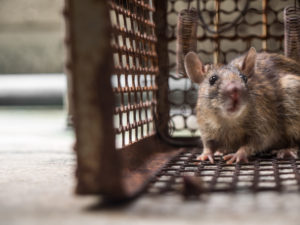 A whopping 51% of all the UK’s pest control callouts are to deal with rodents. Rats and mice present a serious hygiene risk to your home, and to make matters worse, they’re naturally destructive animals, too. This means they can chew through skirting and furniture and can cause real problems if they start chewing on power cables!
A whopping 51% of all the UK’s pest control callouts are to deal with rodents. Rats and mice present a serious hygiene risk to your home, and to make matters worse, they’re naturally destructive animals, too. This means they can chew through skirting and furniture and can cause real problems if they start chewing on power cables!
How to Get Rid of Rats
Rats and mice are very common, but luckily are easy to deal with unless you find yourself with a severe infestation. A combination of rodent poison and rodent traps (lethal or non-lethal) will deal with rats and mice effectively. Rats and mice are naturally cautious animals so make sure you put your traps in an area where you know the rodents have already been. If you’re a pet owner, you might find that you won’t encounter a lot of rats or mice anyway. Rats will be a lot less likely to go sniffing around your home if they catch the scent of a potential predator living there! If you’re looking for reasons to convince your other half to let you get a furry friend, this is a pretty good one to start with!
Comments
Leave a reply
Your e-mail address will not be published. All fields are required


